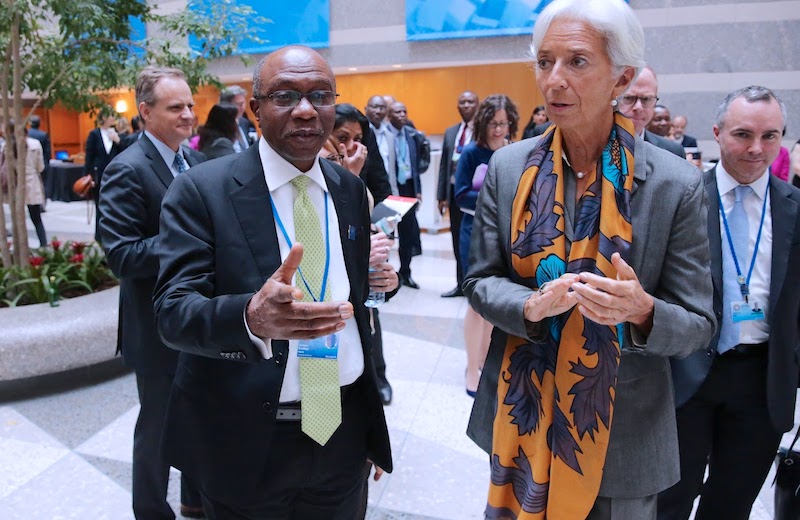IMF urges growth-friendly fiscal adjustments for Nigeria to fully exit recession
March 7, 20181.3K views0 comments
The executive board of the International Monetary Fund (IMF) Wednesday emphasised the need for Nigeria to embark on a growth-friendly fiscal adjustment for it to finally exit recession.
In their 2018 Article IV consultation with Nigeria report, the IMF directors said the adjustment would include frontloading non-oil revenue mobilization and rationalizing current expenditure to reduce the ratio of interest payments to revenue to a more sustainable level and create space for priority social and infrastructure spending.

In addition to the ongoing efforts to improve tax administration, the directors also underlined the need for more ambitious tax policy measures, including reforming the value-added tax, increasing excises, and rationalizing tax incentives.
Other recommendations for the Nigerian government include implementation of an automatic fuel price-setting mechanism, sound cash and debt management, improved transparency in the oil sector, increased monitoring of the fiscal position of state and local governments, and substantially scaling up social safety nets to support the adjustment.
Read Also:
- Mobile money spend in emerging markets on course for 51% growth to…
- The conundrum in Nigeria vs. Dangote Refinery drama
- Nigeria’s Abuja among Uganda Airlines’s new expansion routes
- Airbus highlights Nigeria’s huge market potential on population, GDP
- Focus for the week: HY’24 Nigeria Oil & Gas Outlook: Hanging on a…
The IMF directors acknowledged that the Nigerian economy is slowly exiting recession but remains vulnerable because its growth is tied to oil prices, with improved revenues restricted to the energy and agriculture sectors.
They said new foreign exchange measures, rising oil prices, attractive yields on government securities, and a tighter monetary policy have contributed to better foreign exchange availability, increased reserves to a four-year high, and contained inflationary pressures.
The directors commended the central bank’s tightening bias in 2017, which they recommend should continue until inflation is within the single digit target range.
To this end, they recommended continued strengthening of the monetary policy framework and its transparency, with a number of directors urging consideration of a higher monetary policy rate, a symmetric application of reserve requirements, and no direct central bank financing of the economy.
A few directors urged confirmation of the appointments of the central bank’s board of directors and members of the monetary policy committee.
The Bretton Woods institution also commended the recent foreign exchange measures and recent efforts to strengthen external buffers to mitigate risks from capital flow reversals. They welcomed the authorities’ commitment to unify the exchange rate and urged additional actions to remove remaining restrictions and multiple exchange rate practices.
It said the move would increase confidence, remove market distortions, and increase transparency.
